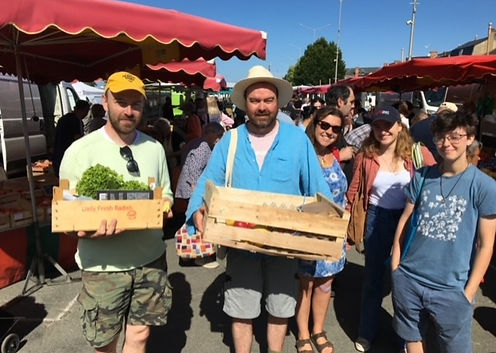Attuning in nature - hands on education for sustainable development
Transdisciplinary Ecology Summer School
Autres Langues

Residential field ecology module








Why do this course in Applied Ecology?
What makes the RAiSE ecology course special is its practical hands-on approach, its integration and celebration of fungal mycelial ecology, its transdisciplinarity, international and multi-lingual learning, based on trans-cultural inclusive mutual aid. You will learn to apply ecology as the study of relationship within biological systems which encompasses relationships between biological living components of ecosystems at every scale, as well as the non-living abiotic factor fluctuations within which living systems operate. You will undertake a psychological journey through the evolutionary history of symbiotic relationships. You will learn how to apply ecology as a weltanschauung (world view) across disciplines spanning arts and sciences, economics, agriculture, and architecture. You will learn how to 'Think Global act local' and apply ecology to solve existential crises at local scales attuned to site-specifics. In so doing, your project can provide local pathways to truly restorative, and regenerative sustainable development.
Skill-up for system change:
A 10-day field ecology module takes place at the beginning of an optional part-time, flexible 9-month Arts and Ecology program culminating in your own community project. The initial field ecology module occurs at the RAiSE ecology venue in rural France. Here, amongst the woodlands, fields, and natural waterways, you will meet the course team both face to face and virtually, and begin your ecological retuning and attuning journey in nature with other species.
The RAiSE ecology residential:
This initial module; an international transdisciplinary intensive, will provide a trans-cultural, transdisciplinary and multi-lingual grounding in both practical and philosophical biology, ecology, biodiversity mapping and conservation, and biologically-inspired art and design. There will be hands-on introductions to citizen science and community arts practices, as well as space for theoretical and philosophical conversations toward the practical implementation of genuine sustainable development.
RAiSE residential accommodation:
At the RAiSE ecology residential, you will be staying in simple, sustainable, rustic accommodation consisting of a sleeping barn, a shared kitchen and dining room, and a classroom space. If you prefer your own private space, you are welcome to bring a tent and sleeping bag.
RAiSE residential 10-day program:
The timetable of the residential ecology module includes practical skills-based learning as well as the theoretical and philosophical curriculum. There will be space for reflection and conversation. Mornings will be practical based, followed by a communal lunch, with afternoons documenting findings, developing theoretical frameworks, and practical resources for the following morning. Evenings will be for conversations, sharing ideas, and inspiring eco-media. The first part of the residential will consist of deep orientation to locations, site, and space. This will be followed by developing techniques of deep observation and ecological inquiry, consisting of fieldwork which will feed into developing techniques of both investigating and enhancing the mutually symbiotic inter-specific relationships that can help you on your re-tuning to nature pathway.
RAiSE ecology mini-project:
Towards the end of the ecology residential, you will apply your knowledge and understanding of nature and sustainability to an attuning to nature mini-project which will help you towards the more extensive RAiSE project that you will instigate on your return home.
RAiSE part-time virtual learning:
After your return home the course will continue with a rota of virtual classes and tutorials to help you to progress your project and its documentation.
RAiSE community project:
Your community project will interweave the three themes of biodiversity, agriculture and climate. Projects will be compiled in a virtual gallery, and assessed, and based on this, RAiSE ecology certificates in Applied Ecology will be obtained on course completion. Participants will be invited to present their projects at the following year's residential either face-to-face or virtually. It is envisaged that a mutually supportive network of like-minded projects could develop in different countries over time.
























